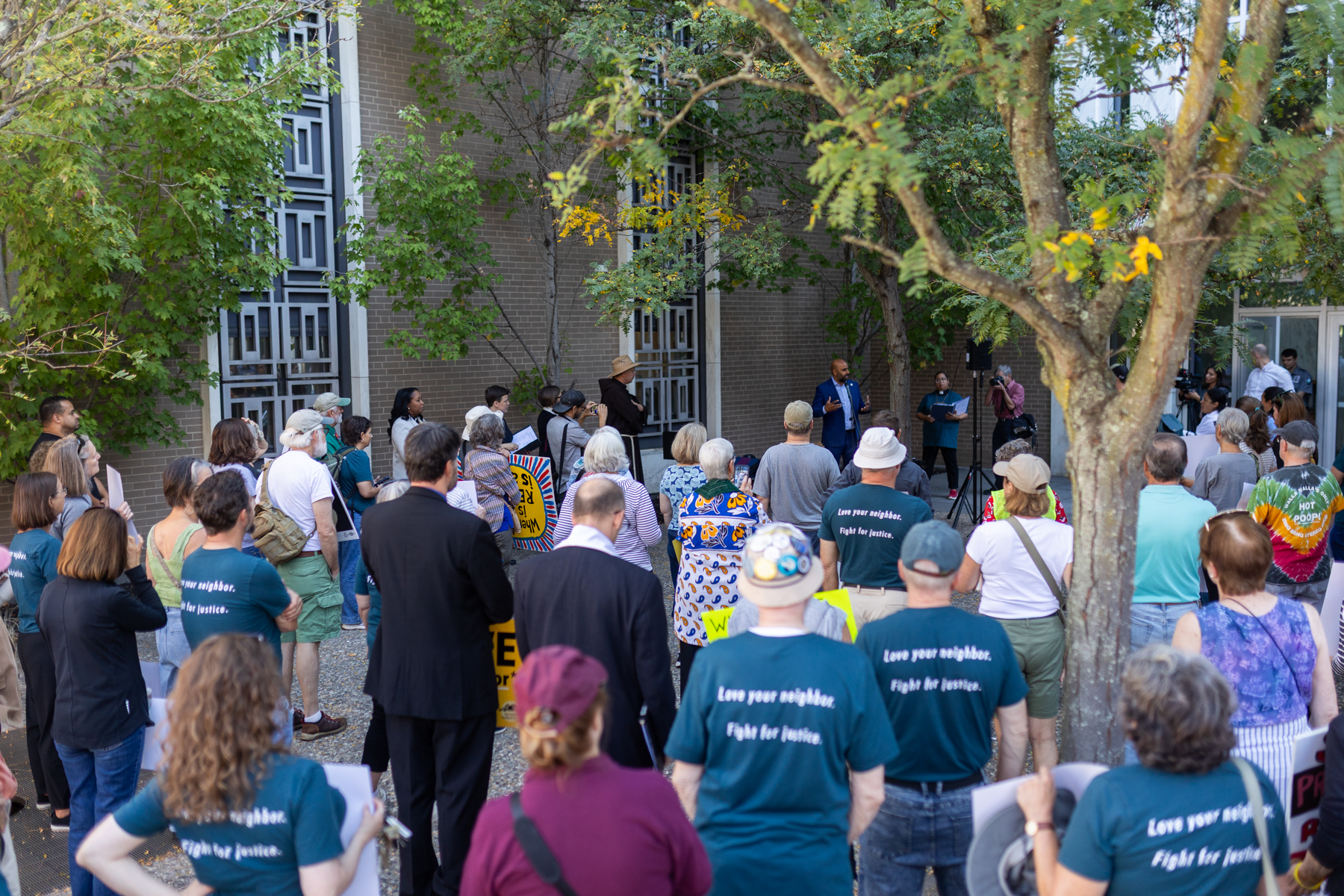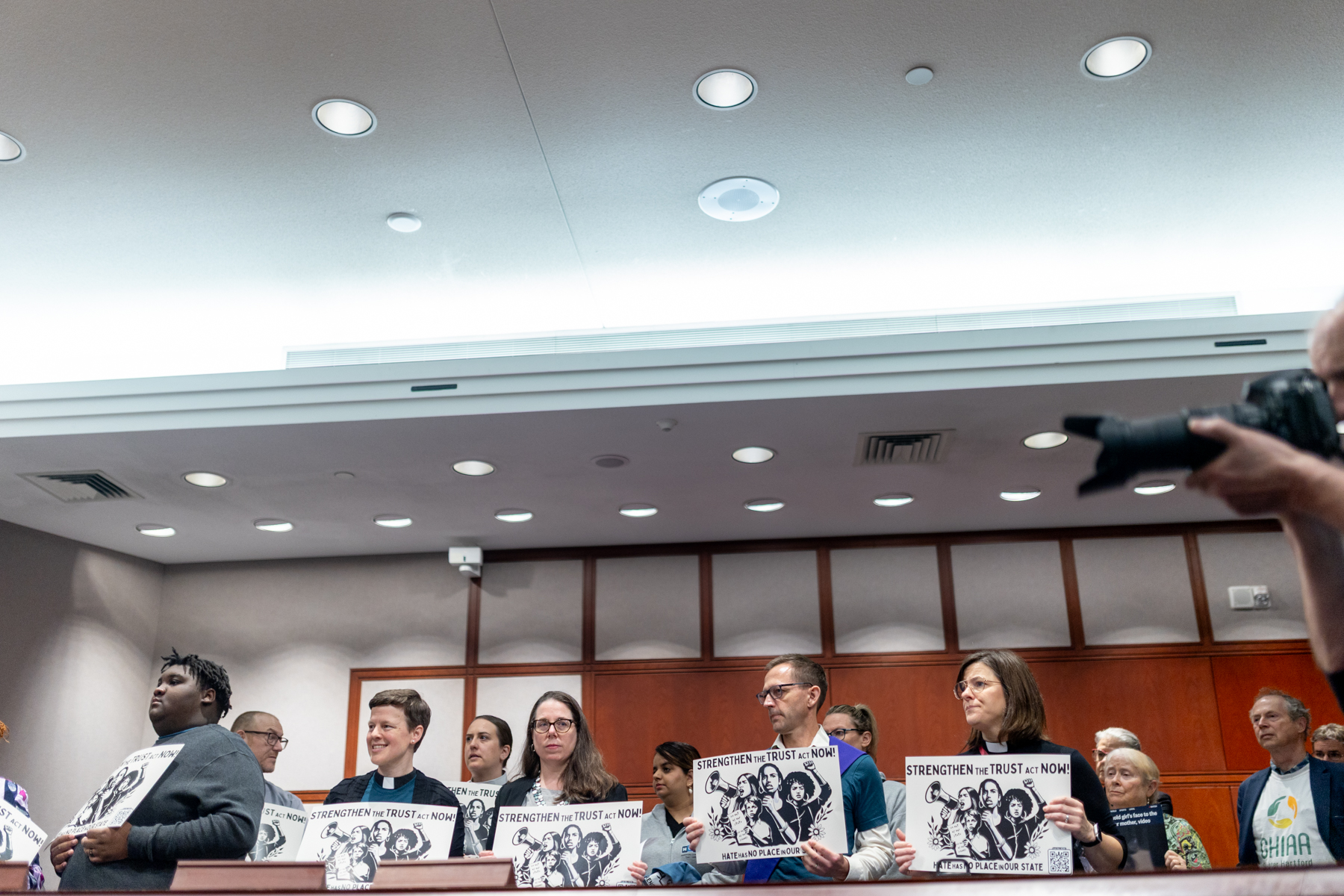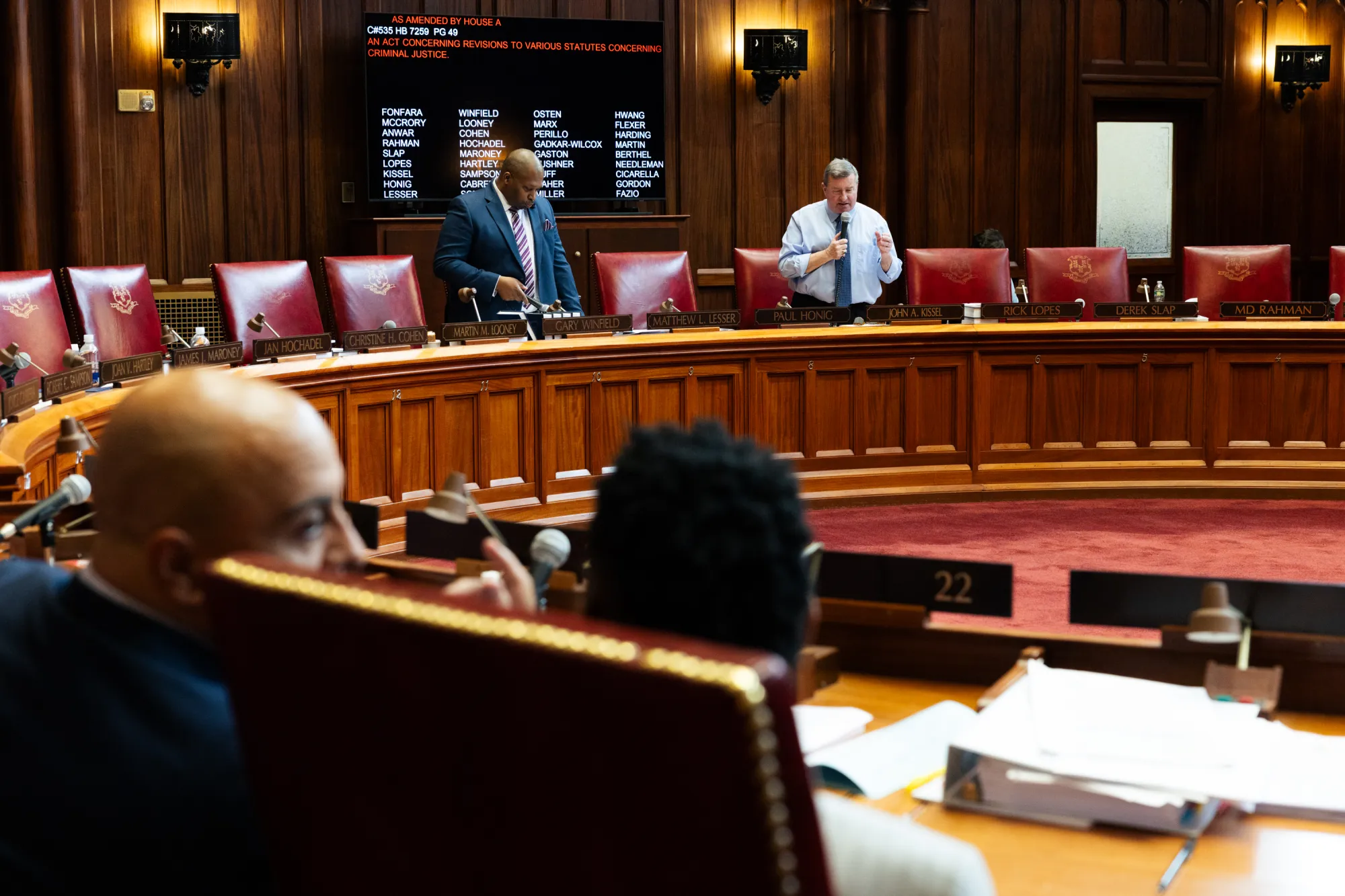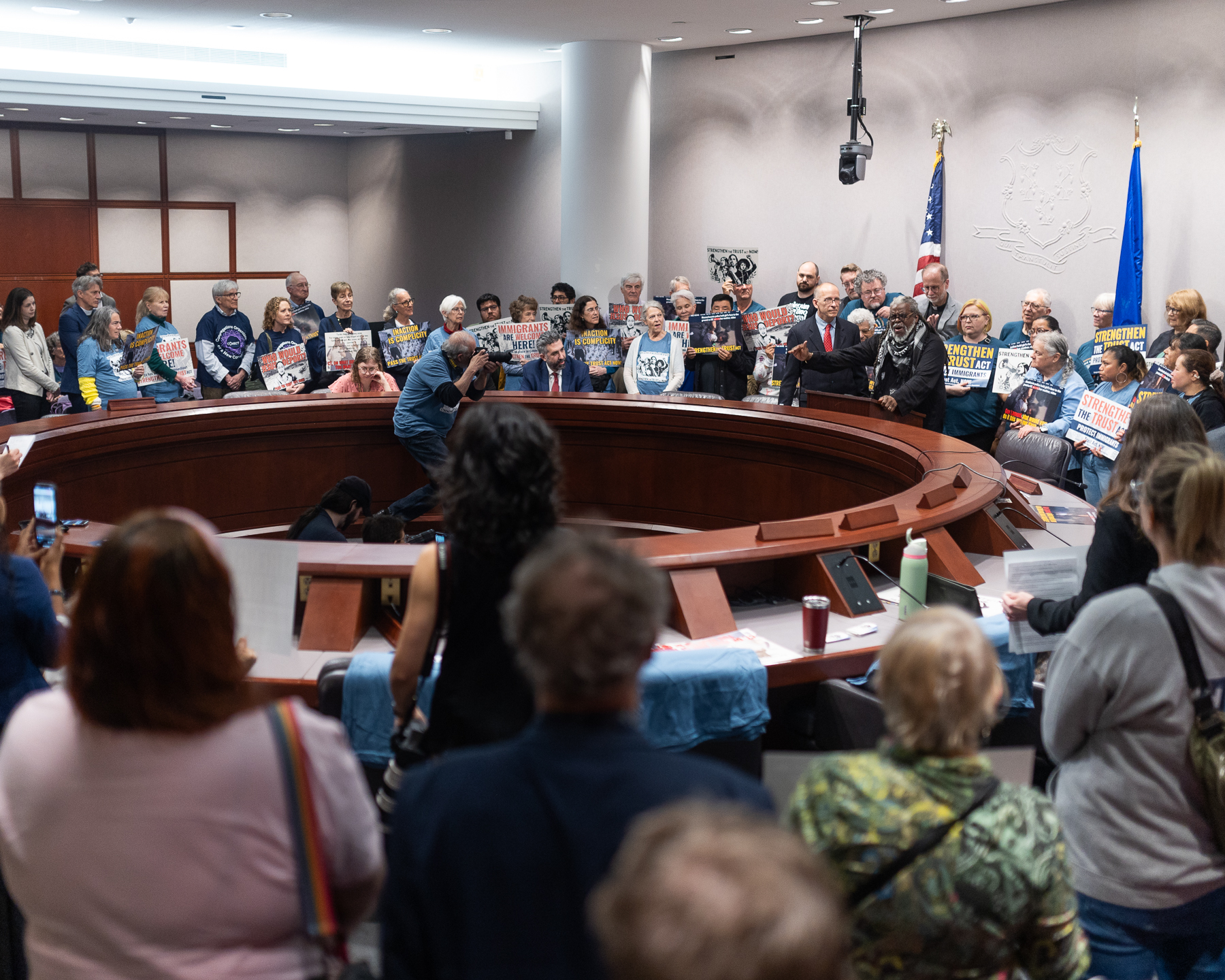
by Mark Pazniokas published in The CT Mirror
The lawyer’s email arrived at 12:20 p.m. on June 2 in the inbox of Courtney Cullinan, the chief of staff to Senate President Pro Tem Martin M. Looney, D-New Haven. It contained proposed legislative language that would benefit two of the lawyer’s clients who had regulatory and competitive problems in Connecticut’s solid-waste industry.
It was crunch time for the General Assembly, just four hours before the House of Representatives would open debate on a freshly drafted 745-page bill implementing a two-year $55.8 billion budget. The adjournment deadline for the five-month legislative session was just two days away, midnight on June 4.
The language provided by Joseph Mazzarella of McCarter & English — a law firm that employs New Haven’s influential Democratic chair, Vincent Mauro Jr., who is in a relationship with Cullinan and preceded her as chief — would boost one client’s struggle to reopen a troubled Wallingford transfer station and help another block a competitor from buying a transfer facility in Torrington.
At Mauro’s suggestion, the email also went to another friend, someone with whom he had negotiated previous budget implementers during his time as a top legislative staffer: Franklin Perry, the chief of staff for House Speaker Matt Ritter, D-Hartford.
What happened next was a case study of the opaque and often chaotic nature of finalizing a budget in Connecticut — and the opportunities to do favors by shaping public policy, changing laws and sidestepping regulatory proceedings, all with little vetting or accountability.
Mazzarella’s language found its way into a nine-line, 77-word portion of a 65-page amendment produced soon after his email arrived. It was a legislative staff assemblage reflecting input from various sources that made myriad last-minute additions and subtractions to the budget implementer, House Bill 7287.
Such a narrowly tailored favor that arrives with no public vetting is known at the state Capitol as a “rat.” How Mazzarella’s proposed language got from the mailboxes of Cullinan and Perry to lines 121 to 129 in an amendment to HB 7287 is a story no one wants to tell.
Who did it?
No one has taken responsibility for placing the language in the implementer. Typically, any such additions are removed if opposed by either the governor’s office, the House and Senate majorities, and in some years the Republican minorities as well.
“Toward the end of session, any number of issues arise to be potentially added to the implementer. A provision will often be included if there are no objections from the House, the Senate, or the administration,” Looney said. “Everyone has a veto.”
But the absence of an objection is not the same as an affirmation, and Ritter and Looney acknowledge a certain casual deference to items placed into the implementer by another caucus or branch of government, especially if they are not obviously counter to the interests of another.
Two years ago, a freshman House Republican managed to get a single sentence included in the 832-page state budget that blocked a warehouse distribution project near his neighborhood in Middlebury.
One major difference with the Middlebury rat is that every legislative caucus leader and the governor’s chief of staff eventually acknowledged to the Connecticut Mirror that they were aware of the measure, and it was a favor admittedly sought on the freshman’s behalf by the House Republicans leader, Vincent J. Candelora.
This year, no legislative caucus is claiming credit or accepting blame for the trash rat, the governor’s office denied agreeing to its inclusion, and Looney, Ritter, Candelora and Senate Minority Leader Stephen Harding, R-Brookfield, say they were unaware of its consequences when the amendment was finalized.
“No one approached me,” Looney said.
A wide range of local officials and legislators who had been tracking the fate of the Torrington transfer station, which was owned by a public entity slated for extinction on July 1, said they were shocked to learn of it.
Among them was Rep. Maria Horn, D-Salisbury, whose district includes communities whose trash goes to the Torrington transfer station. Nominally a sponsor of the amendment as co-chair of the Finance, Revenue and Bonding Committee, she also was tasked with offering and defending it on the House floor.
Her first effort to describe the amendment took 25 seconds. She said it simply adopted revenue projections accepted that morning by the finance committee and made “technical revisions and corrections.”
Republicans immediately complained the amendment was nearly incomprehensible without a painstaking analysis, one that would take hours to complete. It was packed with terse references to changes in the underlying budget bill:
“In line 493, strike “$110,400” and insert “$115,000” in lieu thereof
In line 520, strike “ninety-nine million six hundred thousand” and insert “one hundred one million” in lieu thereof
In line 521, strike “ninety-three million three hundred thousand” and insert “ninety million” in lieu thereof ” …
Under legislative rules, the budget bill must be available in the legislature’s public data system for review for 12 hours, even if some of those hours were prior to sunrise. There is no 12-hour rule for a budget amendment.
“We got this amendment no less than 10 minutes ago,” Rep. Jay Case, R-Torrington, told Horn. He noted a hard-to-decipher reference to the Torrington transfer station and a non-existent “Northwest Resource Recovery Authority” and asked, “And why is it in this document?”
Horn consulted staff and looked at the amendment. Forty seconds passed. Deputy Speaker Mary Mushinsky, D-Wallingford, who was presiding, prodded her to answer.
“Rep. Horn?” Mushinsky said.
“Just clarifying the information to make sure I’m — mostly correct what this section of the bill refers to,” Horn replied.
It became obvious to Republicans that the respected Democratic insider had not possessed the amendment much longer than the GOP outsiders quizzing her. That proved too much for Rep. Tammy Nuccio of Tolland, the ranking Republican on the Appropriations Committee.
“I would really love to do a hands-raised of how many people have read it — before the vote gets done,” Nuccio said. “Or if we’re just voting blindly here, because this isn’t even the blind friggin’ leading the blind. It is deceptively blind.”
Horn said last week that Nuccio was correct in her assessment.
“I thought I knew what was in it,” Horn said. “I had notes as to what was in it, but they were not complete, I regret to say.”
The amendment was far from merely technical. It moved millions of dollars around the budget, duplicated bills that had been passed by the House but might not clear the Senate, and did two significant favors for Mazzarella’s clients, Country Holdings and Enviro Express.
At the time, Country Holdings was trying to negotiate a consent agreement with the Department of Energy and Environmental Protection to resolve violations, a first step to considering a permit to reopen a Wallingford transfer station it acquired in 2019 and closed in 2023. The amended budget directed DEEP to immediately issue a temporary permit.
A DEEP spokesman says the legislative directive to issue a temporary permit to Country Holdings in Wallingford came without warning and is without “modern precedent.” The temporary permit would have come before the typical review of an applicant’s finances and engineering drawings, as well as an assessment of the environmental impact on the host community by odor, noise and traffic.
(Last week, DEEP told the Connecticut Mirror the attorney general had advised the provision as written is not enforceable, and no temporary permit can be issued.)
A list obtained Thursday in response to a request under the Freedom of Information Act shows that Mazzarella, Mauro and Cullinan were participants in a video meeting on Dec. 13, 2024, to discuss issues at the Wallingford site with Commissioner Katie Dykes and other DEEP officials.
Whether Cullinan played a role beyond facilitating a meeting with the commissioner is unclear, as is the case for Mauro. He is a lobbyist at McCarter & English, but he was not registered to represent either Country Holdings or its owner, Richard Antonucci Jr.
Neither Cullinan nor Mauro have agreed to on-the-record interviews since June 28, when CT Mirror first reported the inclusion of the language sought by Mazzarella on behalf of Country Holdings and Enviro Express. Cullinan’s only on-the-record comment came in that story, when she said, “I heard about it, but I am not necessarily familiar with it.”
Perry, the other Democratic chief of staff, did not respond to requests for comment.
Mauro has referred inquiries to Mazzarella. With regard to the legislative language that ended up in the budget implementer, Mazzarella said that Mauro’s only role was to tell him who should get the proposed amendment language helping his clients.
“I was very aware of not implicating anything related to the legislation,” Mazzarella said, noting Mauro was not registered to lobby for Country or Enviro. “So the only thing I ever asked the guy was, ‘Who are the right people to write a letter to?’”
He then wrote to Cullinan and Perry.
The paper trail ends there.
The Torrington issue
The Torrington issue is complicated, arising from a months-long debate over the disposition of transfer stations in Essex and Torrington that had been owned by MIRA, the Materials Innovation and Recycling Authority. Enviro Express operated the Torrington facility by contract.
With the closure in 2022 of MIRA’s primary asset, an aging trash-to-energy plant in Hartford’s South Meadows that once incinerated one-third of Connecticut’s municipal solid waste, the successor MIRA Dissolution Authority, or MDA, was winding down operations and selling assets.
A non-controversial ratification of MDA’s agreement to transfer ownership and permits of the Essex station to the host community already was in the implementer bill. Control over Torrington was not.
Most, but not all, of the communities under contract with MIRA to send their waste to Torrington had been working on a public option, rather than selling the transfer station to a private company in what has been a rapidly consolidating trash industry, both in Connecticut and nationally.
The Northwest Hills Council of Governments, which includes Torrington and 20 other communities, thought the region had the framework of a deal in February, when the MDA board approved a non-binding agreement for Northwest Hills to take it over by June 30, the day before dissolution authority would cease to exist.
But in May, the MDA board agreed to conditionally accept a $3.25 million offer from USA Waste & Recycling, a major family-owned Connecticut company that contracts with municipalities for curbside waste and recycling collection and processes that material at its transfer stations and a recycling sorting plant.
Paul Harrington, an MDA board member and town manager of the Northwest Connecticut town of Winchester, said the public authority envisioned for a region of 113,000 people spread over 786 miles was not sustainable and would require a subsidy to launch.
USA offered a long-term contract with cheaper rates and would generate revenue from the sale, not require a subsidy.
“We were in the middle of negotiating the sale to a private company, and, boom, they dropped the rat on us,” Harrington said.
USA issued a statement saying, “The MDA determined our plan would deliver stable, affordable rates for 5 to 10 years, and contribute $3.25 million toward cleaning up the MIRA South Meadows facility. Each community would have the option to participate and determine the length of that participation at their sole discretion.”
“In contrast,” the company said, “the public option was never publicly vetted, depends on an approximately $6 million taxpayer subsidy, includes no funding for environmental remediation, and would result in tipping fees at least $10 higher per ton for local residents, which would increase after the expiration of the subsidy.”
If sold to USA, the proceeds would have gone to the cleanup of the MIRA site in Hartford, a relatively small contribution toward the tens of millions expected to be needed to demolish the former trash-to-energy plant and remediate a polluted site by the Connecticut River adjacent to a park, either for recreation or redevelopment.
Mazzarella didn’t object to the characterization of his legislative language as a rat, but he insisted it was a good rat — serving a public purpose by keeping the Torrington permit in public hands, as Torrington Mayor Elinor Carbone and other northwest community officials desired.
“There should always be a public option,” Carbone said. “Our concern was private industry, you know, might make a sweet, attractive introductory offer on the prices. But as we all know, anybody who signed up for a good cable plan, after that introductory period is over, you have no control over those prices.”
Still, Carbone said she was shocked by the legislative action, as was Rob Phillips, the executive director of the region’s council of governments.
“I think it had something to do with the attorney for Enviro knowing somebody who through the political framework was able to draft that legislation and get it in,” Phillips said. “I still don’t even know all the names involved.”
Carbone was in an executive session at a council meeting on June 2 when Rep. Joe Canino, R-Torrington, texted with an urgent request that she call him. Canino wanted to know if Carbone knew anything about the amendment. She didn’t.
Canino, a first-term legislator, was confused by a reference in the amendment to control of the Torrington permit, not the facility’s ownership. He thought the ownership fight over once the MDA board unanimously voted to sell to USA.
“My mayor had come to me and asked if there was anything we could do months ago,” Canino said. “And I thought the deal’s signed, sealed and delivered. It was done according to their bylaws. There’s nothing we can do.”
The border of two state Senate districts run through Torrington: one represented by Harding, the Republican minority leader; the other by a freshman Democrat, Sen. Paul Honig of Harwinton. Both say they were not told what was coming in the amendment.
“I think it was a pleasant surprise,” Harding said. “I think the feedback I’ve gotten from municipal officials in my district is they believe this is a real opportunity to help find a more affordable and more environmentally efficient option to address waste control in the northwest corner, which is becoming a growing problem.”
Horn, whose district includes many of the Northwest Hills communities desiring a public option, said she also likes the outcome — but not the method. So did Canino and Harding.
“I would agree that rats are not the best way to do public policy,” Canino said.
So whom does he have to thank?
“I have no idea,” Canino said.
“It’s a little bit of a mystery,” Honig said.
Hartford Mayor Arunan Arulampalam, who hustled to the Capitol before the session ended to see if the USA sale and $3.25 million for the Hartford cleanup could be salvaged, said the House speaker initially was hopeful, but he first had to determine who was behind putting the rat in the budget implementer.
“Everybody was just trying to figure out where it came from. It’s like chasing this rabbit around the Capitol,” Arulampalam said.
Sen. John Fonfara, D-Hartford, who is Senate finance committee co-chair and a member of the MDA board, said the amendment “throws a grenade” into what was to be orderly transition in Torrington. While a new public authority will hold the permit, ownership has defaulted to the state Department of Administrative Services.
Fonfara said he, too, was blindsided by the amendment. Despite its impact on Hartford and his role on Finance, Revenue and Bonding, no one flagged it. He said he was told a fix was coming, but none came when the Senate approved the budget the next day.
Ultimately, Ritter said, he will look for other funding to remediate the Hartford site.
Carbone said she is sympathetic if Arulampalam feels victimized by the confusing episode, as she felt after MDA stopped negotiating with her and suddenly endorsed a sale to USA.
“It was all pretty ugly,” Carbone said. “I guess you could say there were a lot of rats.”









